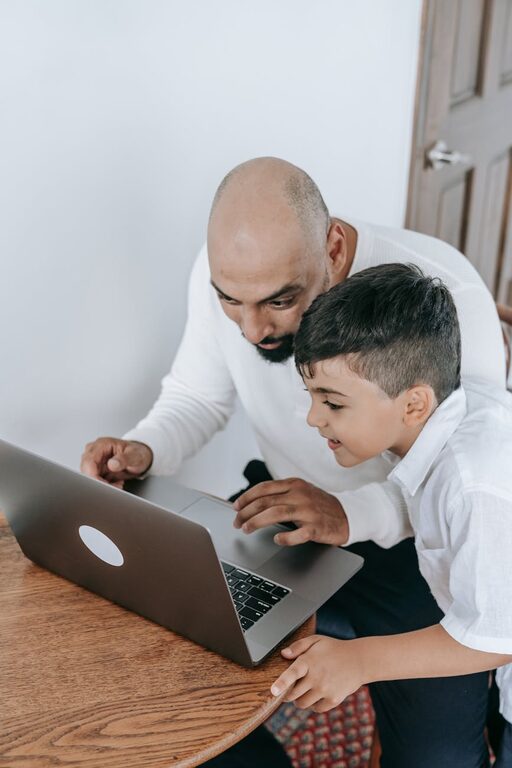Spending long hours in front of screens has become common—whether for work, study, or entertainment. While digital devices make life easier, extended screen time can lead to eye strain, discomfort, and even headaches. Taking care of your eyes is essential for maintaining clear vision and comfort. In this post, we’ll explore practical tips to protect your eyes during screen time and promote long-term eye health.
Understanding Digital Eye Strain
Digital eye strain, also known as computer vision syndrome, occurs when your eyes get tired from prolonged use of computers, tablets, smartphones, or other digital devices. Symptoms may include:
– Eye fatigue or discomfort
– Dry or irritated eyes
– Blurred or double vision
– Headaches
– Neck and shoulder pain (from poor posture)
By making small changes in your screen habits and environment, you can reduce these symptoms and give your eyes the care they need.
Simple Ways to Protect Your Eyes
1. Follow the 20-20-20 Rule
One of the easiest strategies to reduce eye strain is the 20-20-20 rule: every 20 minutes, take a 20-second break to look at something 20 feet away. This helps your eye muscles relax and reduces fatigue.
2. Adjust Your Screen Settings
Optimizing your device’s display can minimize strain:
– Brightness: Match the screen brightness to the ambient light around you. Avoid screens that are too bright or too dim.
– Text size and contrast: Increase text size and adjust contrast for comfortable reading.
– Color temperature: Use warmer colors or “night mode” settings in the evening to reduce blue light exposure, which may interfere with sleep.
3. Maintain Proper Lighting
Poor lighting can increase eye strain:
– Avoid glare by positioning your screen away from windows or bright lights.
– Use blinds or curtains to control natural light.
– Consider anti-glare screen protectors if necessary.
– Use adequate ambient lighting to balance screen brightness.
4. Optimize Your Workspace Setup
Ergonomics play a key role in reducing eye fatigue:
– Position your screen about an arm’s length away (20-28 inches).
– The top of the screen should be at or just below eye level.
– Sit in a comfortable chair with good posture to avoid neck and shoulder tension.
5. Blink More Often
When staring at screens, people tend to blink less, leading to dry eyes. Make a conscious effort to blink regularly, or try following the “blink and close” technique—close your eyes gently for a few seconds to refresh them.
6. Use Artificial Tears if Needed
If your eyes feel dry, over-the-counter artificial tears can help keep them moist. Choose preservative-free drops and consult an eye care professional if dryness persists.
Lifestyle Tips to Support Eye Health
Eat a Balanced Diet
Nutrition affects your vision. Include eye-friendly nutrients such as:
– Vitamin A (carrots, sweet potatoes)
– Omega-3 fatty acids (fish, flaxseeds)
– Vitamins C and E (citrus fruits, nuts)
– Zinc (beans, nuts)
These nutrients support overall eye function and may help prevent certain eye conditions.
Stay Hydrated
Drinking enough water helps maintain moisture in your eyes and reduces dryness symptoms.
Get Regular Eye Exams
Routine check-ups with an eye care professional can detect vision problems early and ensure your glasses or contact lens prescription is up to date.
Benefits of Blue Light Filters and Computer Glasses
Many people consider blue light filters or specialized computer glasses to protect their eyes from screen exposure. Blue light filters can be apps or screen protectors that reduce blue light emission. While research on blue light’s impact on eye health is ongoing, these tools may help reduce eye strain and improve comfort during prolonged screen use.
If you experience persistent discomfort, discuss these options with an optometrist or ophthalmologist.
Conclusion
Prolonged screen time is a part of modern life, but that doesn’t mean your eyes have to suffer. By adjusting your screen habits, optimizing your environment, and taking care of your overall eye health, you can reduce eye strain and maintain comfortable vision every day. Remember to take regular breaks, position your screen properly, blink often, and keep your eyes nourished and hydrated. Your eyes will thank you!
—
Feel free to share your own tips for eye care during screen time in the comments below!



